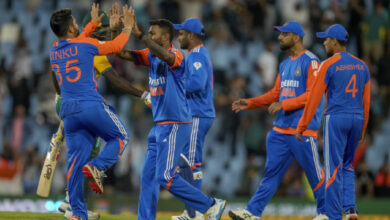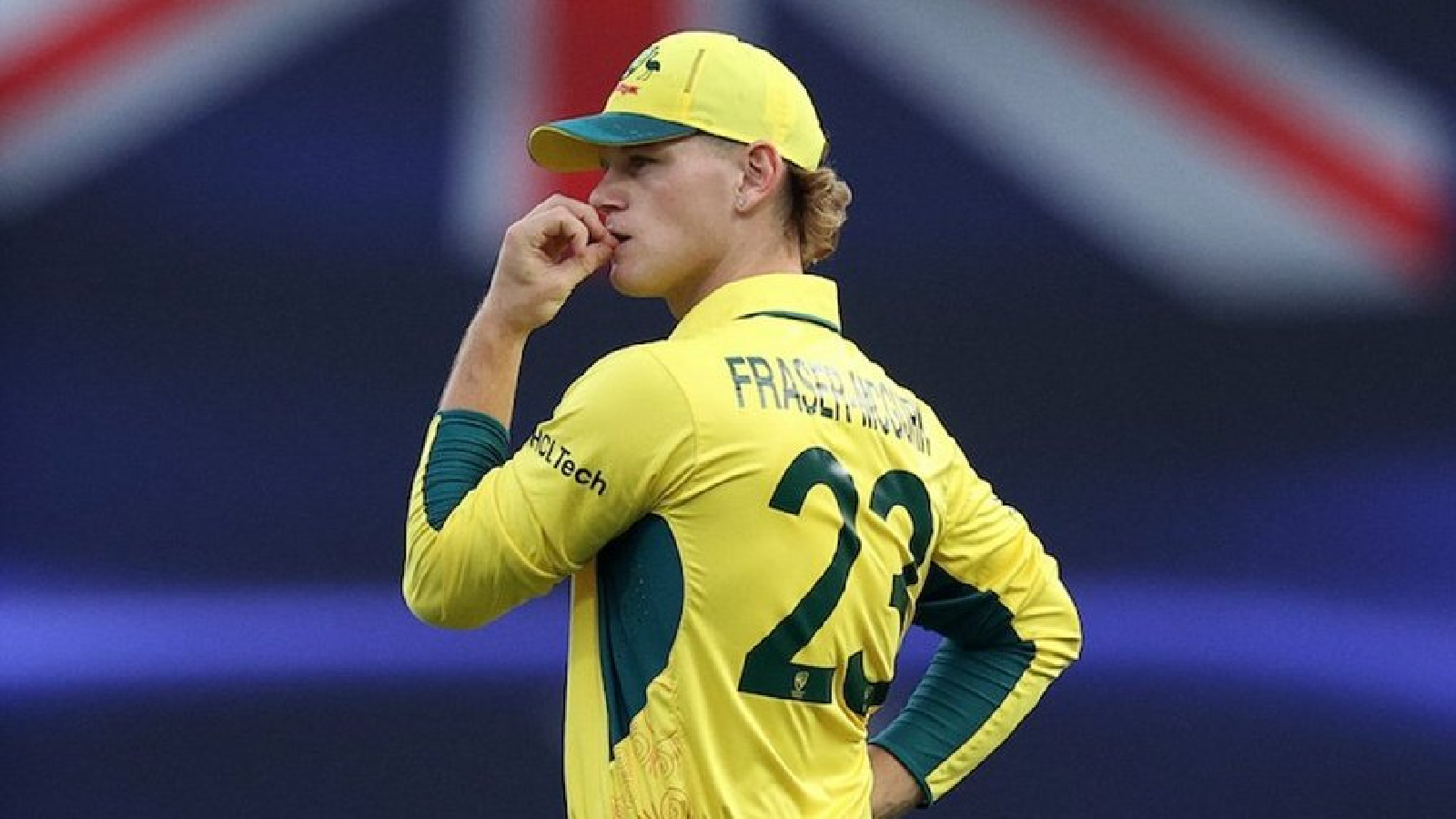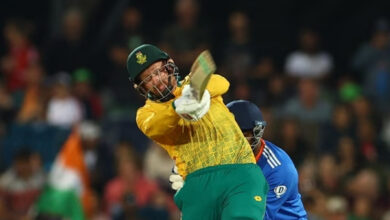Cricket at the Olympics: Why now? A reflection of the growth of the sport, says IOC’s Sports Director on the sport’s pitch for Los Angeles Games | Asian-games News

“There’s no breaking news from our side, unfortunately,” begins Kit McConnell. Early in the conversation, the International Olympic Committee’s Sports Director underlines that they are still in discussions with the Organising Committee of the 2028 Los Angeles Games over the inclusion of new sports to the programme.Cricket is considered to be one of the frontrunners for a return to the Olympics after more than 100 years. Its fate will be decided formally during the IOC Session in Mumbai from October 15 to 17.
Ahead of the big meeting, McConnell spoke to The Indian Express on the factors taken into consideration for adding a sport to the Games, how cricket can benefit from being at the Olympics, and why the sport is being considered for the Games now.
Excerpts from the interview:
What works for and against a sport like cricket for its inclusion in the Olympic programme?
Putting aside cricket and talking more generally, what we love to see is a sport that adds value in different ways. Already with 20 elite sports in consideration on our side (including) boxing, weightlifting and modern pentathlon, we’re looking for sports that add something new and different in terms of their demographic. And that can be the age profile, geographic profile, different types of communities. So something that brings in new audiences.
Equally, something that in terms of the nature of the sport adds to the mix. We’ve got very traditional sports, which are still extremely popular, like athletics, gymnastics, volleyball, swimming, and others. But we’ve also got some of the newer sports and disciplines like BMX, 3×3 Basketball. So it has to fit but also add to the mix of sports we have and bring in, ideally, new audiences and new demographics to the Games.
What do you feel about cricket and the Olympics?
We have to be objective and look at all sports equally. Cricket obviously has proven its huge, dedicated global following. Coming from New Zealand and Australia, I grew up with a good awareness of the sport. And as we’ve seen the build-up to the Cricket World Cup you’re hosting there in India, the amount of interest that it generates around the world and equally, even the competition at the Asian Games that’s going on at the moment.
We can see both the global growth of the sport plus the levels of passionate support for the sport as well. So this is one of the criteria that’s obviously considered for all of the sports that are considered organising committees to put forward to us. And to be fair, that’s exactly the same considerations that were given to the sports that were added for Tokyo and for Paris; in terms of the value they bring to the Games, the communities around the world they bring to the Games. These are key considerations.
Why is cricket in the mix for an Olympic spot now?
We are always looking for opportunities to modernise the Olympic programme. You could ask the same question for Tokyo: Why surfing? It’s because the opportunity exs for an organising committee to add it, which hadn’t exed previously. So that has opened up the discussion across a number of sports, including cricket. And cricket continues to grow in many countries, obviously they’re putting forward the best case they can.
So why now? I think it’s a reflection of the growth of the sport. Also the opportunity that our changes to the possibilities on the Olympic programme have given these sports to actually have that conversation, not to have to take a sport off the programme to bring a new one in, which was previously the case.
Cricket has a lot to gain from being at the Olympics. But for the Olympics, to be able to tap into the South Asian diaspora, the fact that the next two Olympics are in LA and Australia, in terms of finances the way of TV rights, how are those elements being looked at in relation to cricket at the Olympics?
If we look at the other sports that have come into the programme, we’ve seen the value addition both ways. With skateboarding, surfing and sport climbing already in Tokyo, they are in the programme for Paris and are already confirmed for Los Angeles… we’ve seen the new communities around the world that are passionate; both participants and supporters of the sports that have now joined the Olympic community.
Equally, we’ve seen the development in those sports with new countries taking part, new athletes are being developed, governments, National Olympic Committees around the world investing in these sports. Now they’re in the Olympic programme. So we’ve seen a real development in the universality and globality of the sports that have come into the programme.
And then if we put the athletes at the forefront, we’ve seen skateboarders, the surfers, some of the biggest names in those sports now being Olympians and what it means to them. That’s a real value addition both ways as well.
So I think it’s very clear that we’re looking for benefits on both sides. It’s not just about us being selfish and what the sport can bring to us. The reason a lot of these sports are putting their cases forward is because they also see the benefits of becoming an Olympic sport, not only in the profile it gives them at the Olympic Games, but the global development that it brings to their sport outside the traditional main countries. It brings a real investment in smaller countries in their sports and helps develop those countries around the world, which every sport wants.
Most Read
1
Karnataka Bandh News Live Updates: Hundreds of protestors detained as precaution; Dy CM Shivakumar says Bandh was not needed
2
Jawan box office collection day 22: Shah Rukh Khan’s blockbuster sees spike in numbers despite challenge from Fukrey 3, passes Rs 1030 crore worldwide
See More
A few experts have pointed out that the Indian Premier League might have played a role in showing the financial potential of cricket. When you consider a sport for inclusion, do you look at a league like IPL and the impact it has?
I think in a lot of sports, there’s a balance between the professional leagues, the professional competitions, and the other national tournaments. So that type of balance between the international representative competitions and the professional leagues and professional tours and such, it’s not uncommon across the sport models these days. Even in some of the newer sports that have come in, in surfing, for example, there’s a highly-developed professional league. And that was an important part (in the sport’s inclusion). They were fully supportive about the inclusion of surfing in the Olympic Games. So those considerations are important. But they’re a common part of a number of sports now across the Olympic sports landscape.
And again, this can help both ways. It raises the profile to have these really successful professional leagues. And equally, coming into the Olympic programme and developing both, the global visibility and the development pathways for players from other countries. Ultimately, this drives value back into the international competition and potentially those professional athletes as well, in terms of the availability of talent in the future, and the visibility of those competitions outside the Olympic Games.







